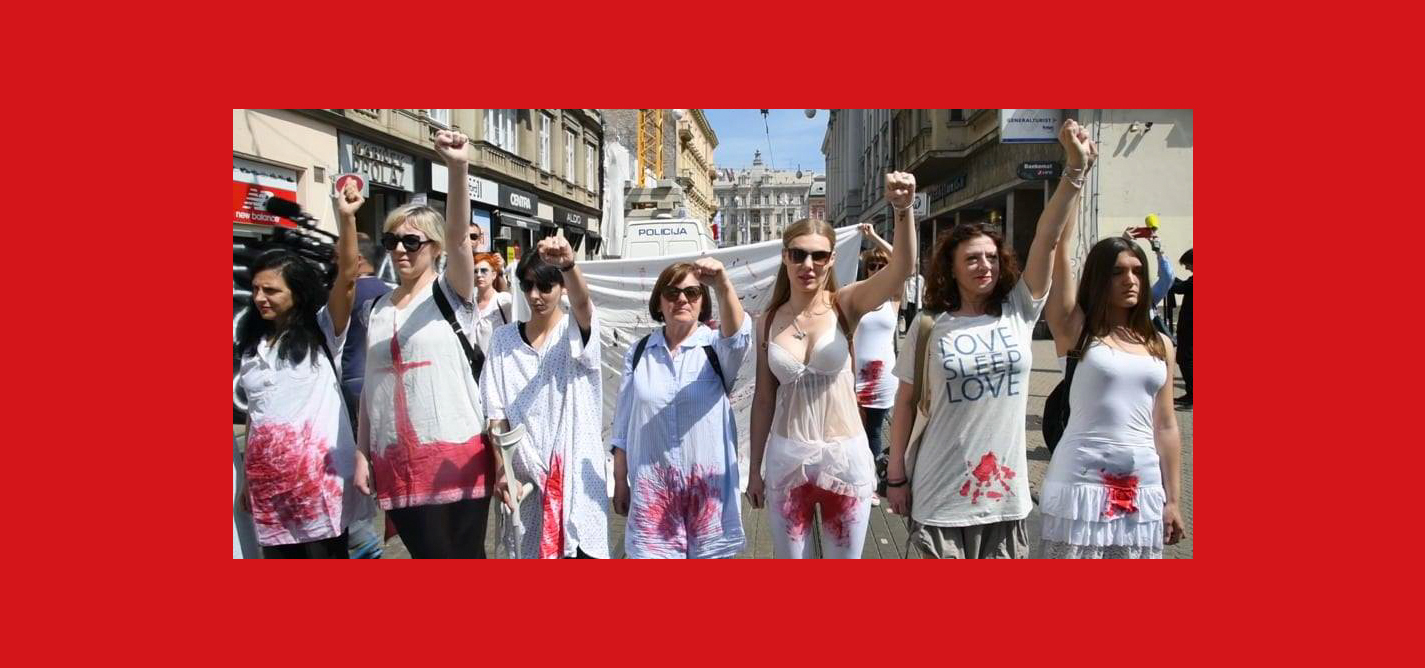
Walking back abortion rights?
Facing regional conservatives to protect women’s rights.
The ban on abortion means negating the rights of women to decision-making, and is considered to be a direct manifestation of hatred toward them.
Leonida Molliqaj says that, despite the legal regulations as old as a few decades, pregnancy termination is still connected to morals and a woman's honor.
The official political discourse in Serbia — which is often close to the ideas of the Serbian Orthodox Church — promotes the “raising of birth rates.”
“The issue of motherhood is a personal decision of every individual woman.”
Jelena Višnjić, BeFem“The context and very slippery slope have additionally been worsened by pro-life policies from neighboring countries.”
Selma Badžić, Women’s Rights Center of Zenica“Even though more than 60% of citizens support legal abortion, this number was slightly higher in the ’90s.”
Croatian activists fear that the new law could introduce a number of obstacles to performing abortion.

Jovana Netkovic
Jovana Netković is a comunicologist and activist from Belgrade. As a journalist and memmber of feminist cultural center BeFem, she has dealt with women’s rights and the status of women in the media. She researches the status of different marginalized groups and jointly with her fellow activists makes short documentaries about local women who are role models in their neighborhoods.
This story was originally written in Serbian.